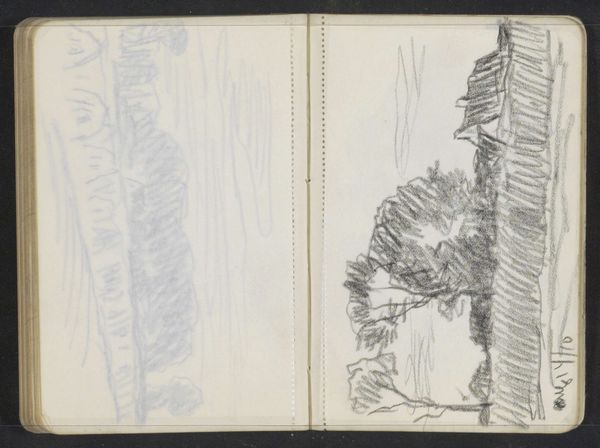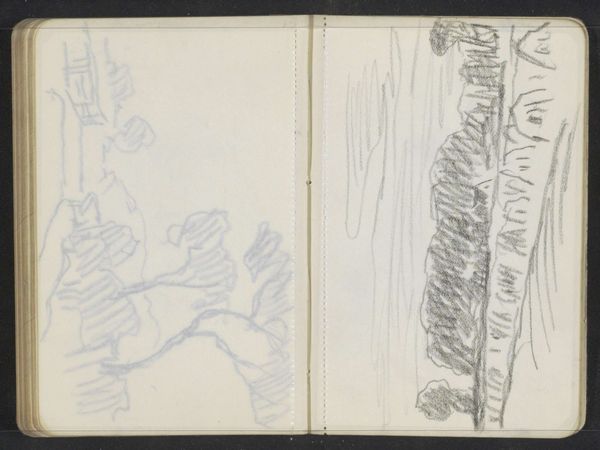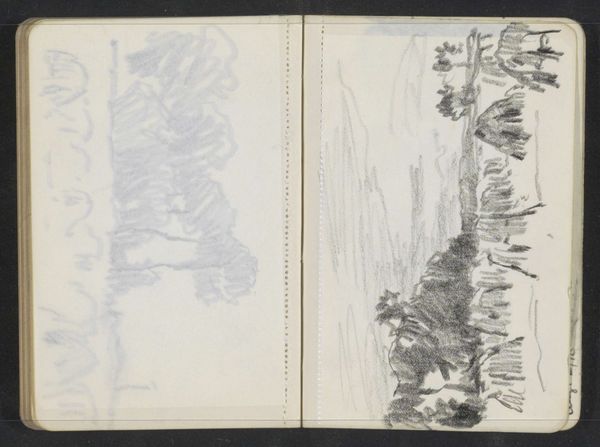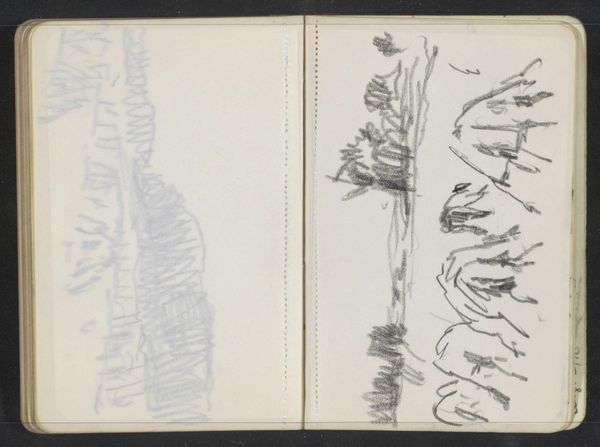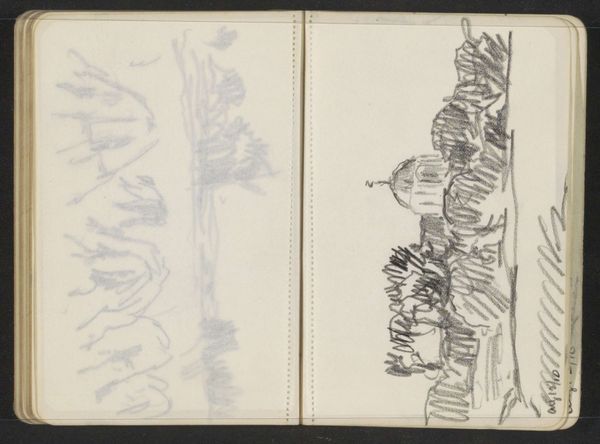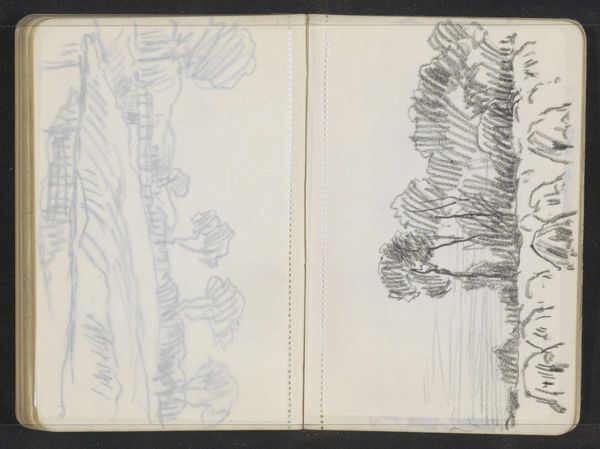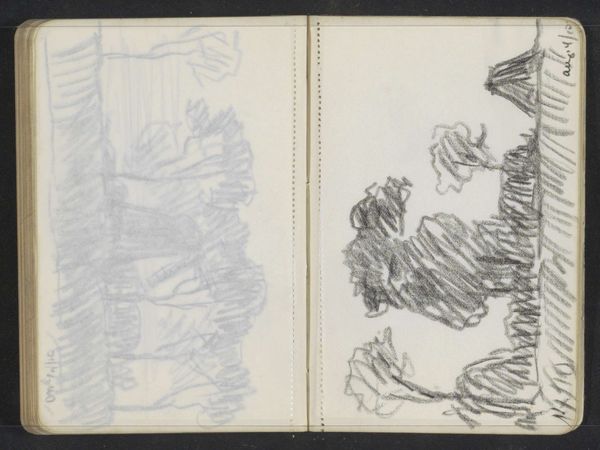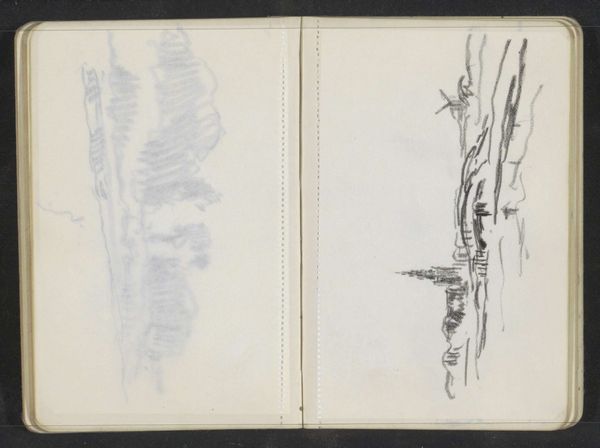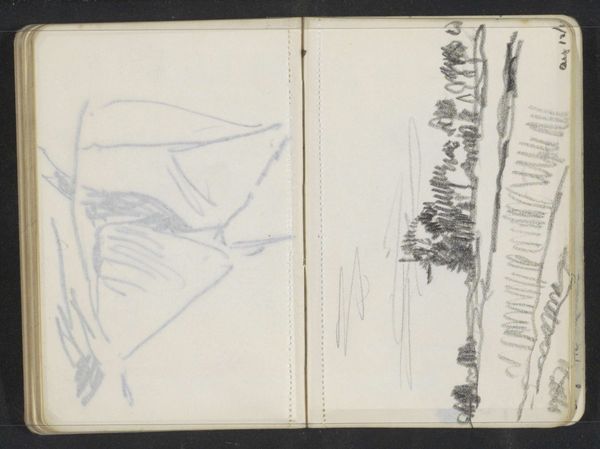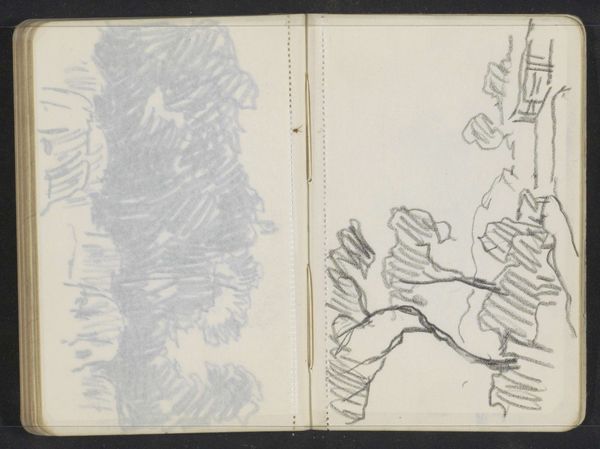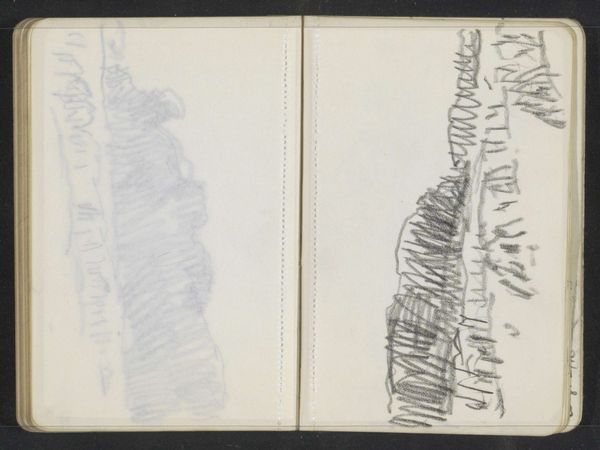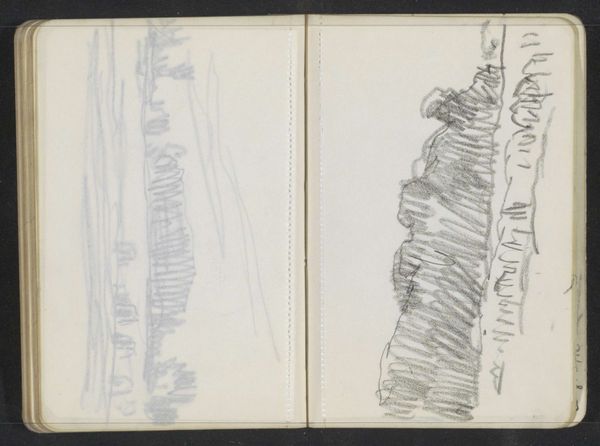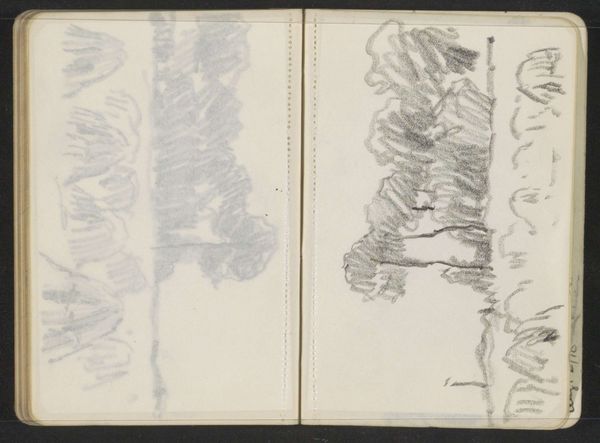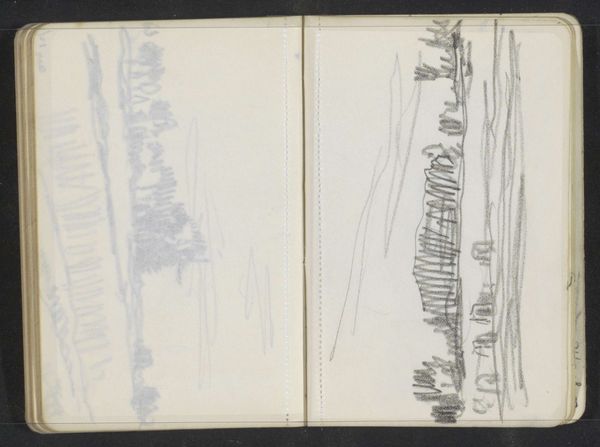
drawing, pencil
#
drawing
#
pen sketch
#
sketch book
#
hand drawn type
#
landscape
#
personal sketchbook
#
sketchwork
#
pen-ink sketch
#
pencil
#
pen work
#
sketchbook drawing
#
storyboard and sketchbook work
#
sketchbook art
Copyright: Rijks Museum: Open Domain
Editor: Here we have Alexander Shilling’s "Landschap met bomen en een huis," dating back to around 1909. It's a pencil and ink drawing, appearing to be from a sketchbook. It’s a very simple landscape, almost dreamlike. What do you see in this piece? Curator: Formally, it’s an interesting diptych, the two pages in conversation. Notice the contrast in mark-making: on the left, a dense, almost cloud-like form created with layered strokes. On the right, sparser lines delineate the trees and suggestion of a house. Editor: Yes, the left side seems much more abstract than the right. Almost like a study of form itself, rather than representation. Curator: Precisely. The negative space on the right also creates a dynamic tension, wouldn't you agree? It forces us to consider the relationship between line and void, between the concrete and the suggested. Editor: So, by analyzing the formal qualities, we can appreciate how the artist explored the basic elements of art itself. Do you think the medium influences our perception? Curator: The use of pencil and ink contributes to the immediacy of the sketch, making it seem more intimate, more of a direct record of perception. A more deliberate medium, such as oil paint, might encourage a more finished, less fragmented composition. Editor: I never considered how the choice of media directly impacts the work and therefore my perception! Thanks. Curator: A careful reading of its structural elements allows us a more enriched interpretation and understanding.
Comments
No comments
Be the first to comment and join the conversation on the ultimate creative platform.
